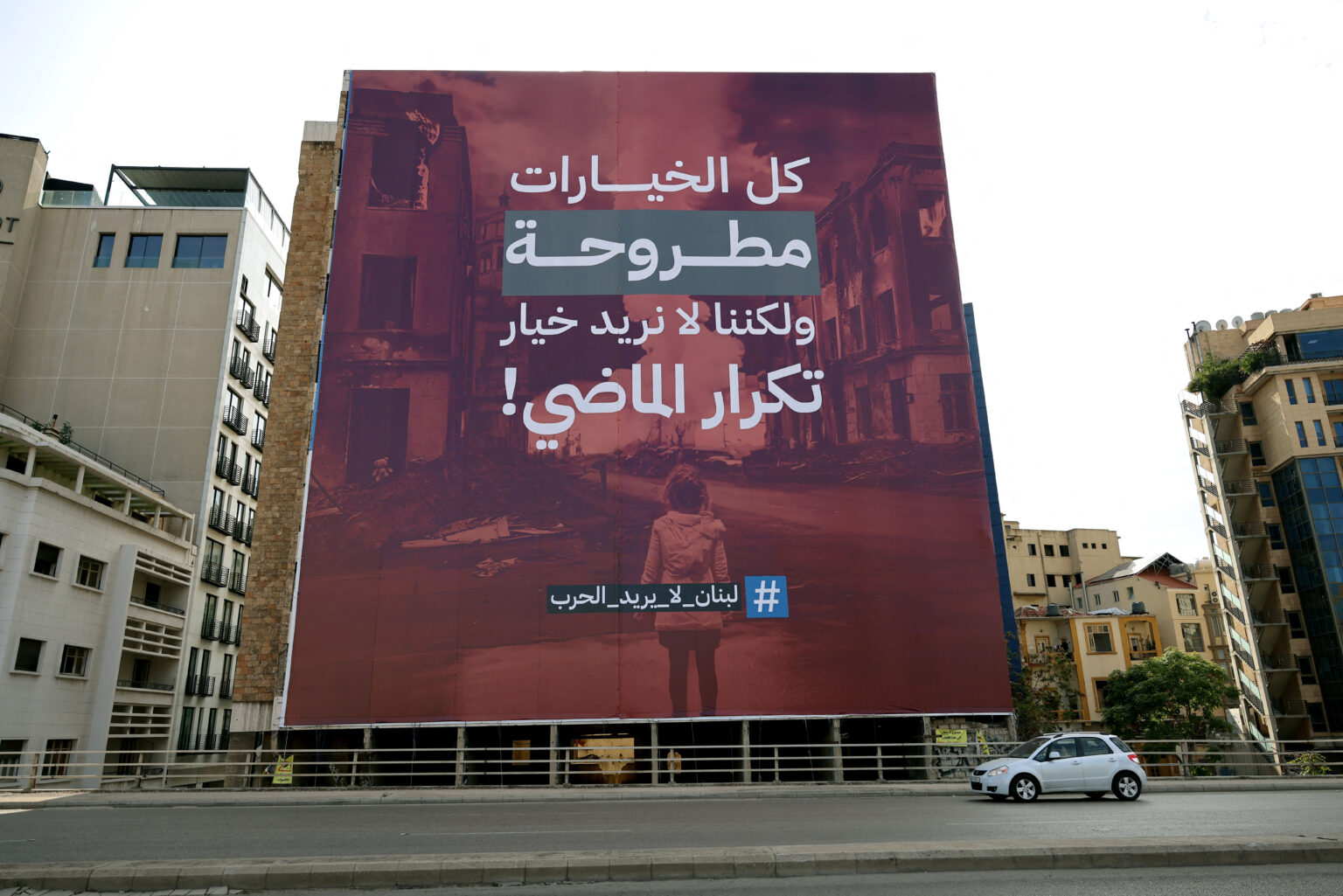As part of their propaganda efforts across the country, the campaign known for its hashtag #Lebanon_Doesn’t_Want_War displayed a photo from the funeral of martyred journalist Issam Abdallah in one of its billboards.
Abdallah was murdered by an Israeli strike on southern Lebanon on October 13, 2023, while carrying reporting for Reuters.
The billboard – titled “Enough…we’re tired” – displays faces of people in Abdallah’s funeral without having previously obtained their consent, in what is a direct violation of ethical communication methods.
According to Megaphone, Abdallah’s relatives were surprised to see their faces on the billboard and rejected the use of a funeral photo and a “moment of devastation” for personal political messages, describing it as “extremely low.”
The reactions to the billboard varied, from people shaming the use of the photo to pointing out that such an act might be against the law and violate data privacy and data protection regulations.
Reactions also included those that politically opposed the campaign, rejecting the premise of not wanting war given that it was imposed on Lebanon as a result of Israeli forces’ aggressions and their occupational status in Lebanon and Palestine.
Continued Tensions and Social Fragmentation
More than nine months after the start of the conflict in Lebanon, the country continues to be divided in an extremely polarized fashion.
Two major camps dominate the sociopolitical landscape, namely those close to Hezbollah and its allies, supporting the party’s politico-military endeavors, and those close to the Lebanese Forces and their allies, supporting a federalist discourse.
A third discourse, however, is on the rise. Yesterday a number of political organizers and activists from independent groups such as Mada, Shamalouna, Sahlouna al Jabal and many others announced the “soft” launch of “Movement Under Construction.”
The movement is secular, progressive and non-militaristic in nature, standing in stark opposition to the country’s traditional ruling class parties, as well as dominant militias and the Association of Banks.
For many, the launch of the party represents a reinvigoration of the country’s crippled alternative, progressive political scene. Moreover, it represents a unification of efforts by members from different regional, sectoral and political backgrounds.
As matters stand, matters in Lebanon remain extremely tense as the conflict rages on and the socioeconomic crisis fails to abate.
According to the latest Cumulative Emergency Report issued by Lebanon’s Ministry of Health on June 9, the number of casualties has reached 1904, including 466 deaths, 507 inpatients and 2016 impacted by chemical exposure due to white phosphorus as a result of Israeli aggressions.


